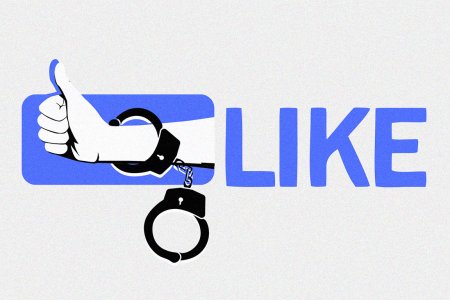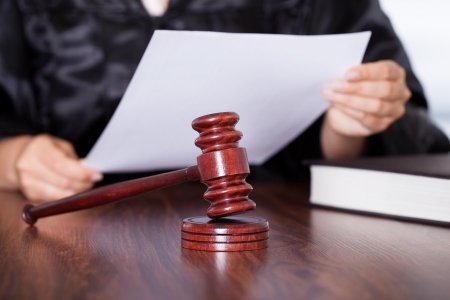![Ілюстрація на основі фото з сайту РІА-Південь © Марія Крикуненко [колаборанти] Illustration based on a photo from the RIA-South website © Maria Krykunenko](https://khpg.org/files/img/1608822526.png)
In March 2022, the Criminal Code of Ukraine was supplemented with several new articles, the adoption of which was due to the beginning of the Russian full-scale invasion. One of the acts that was then criminalized was “collaborative activities” — cooperation with the Russian Federation or actions aimed at assisting in waging a war against Ukraine.
Discussions on whether collaboration should be criminalized have been going on since 2014. They did not stop after the above-mentioned amendments to the Criminal Code of Ukraine were made. However, today, our goal is to focus on reviewing judicial practice. We will not consider the discussion issues, but everyone can draw their conclusions.
Criminal liability for collaboration activities is provided for in Art. 111-1. We analyzed 2018 court decisions under this article. These decisions are available from April 4, 2022 (the first published verdict under the article) to December 1, 2024. The actual number of decisions taken for analysis is smaller due to duplicate court decisions, closed access to some of them, and also because the list of decisions included verdicts under a different article in several cases.
Article 111-1 is quite cumbersome: it consists of eight parts and contains various components of criminal offenses and crimes. So, let’s consider each part separately.

‘While at a bus stop, I verbally expressed…’ — Part 1 of Article 111-1
Part one of the article on collaboration includes actions in the form of “public denial of aggression”; “affirmation of the temporary occupation of part of the Ukrainian territory”; “calls by a citizen of Ukraine to support the decisions and/or actions of the aggressor state”; “calls for cooperation with the aggressor state”; “calls for non-recognition of the extension of Ukraine’s state sovereignty to temporarily occupied territories”.
Almost always, it is about committing all of the above in public places or on various platforms on the Internet. The sanction under this article is deprivation of the right to hold certain positions or engage in certain activities for a period of 10 to 15 years. The number of such sentences is the most significant, 549.
For example, a man stood with two acquaintances at a bus stop and — the following quote from the court decision — “ to persuade them to his position, he repeatedly publicly, orally expressed ... about the correctness and legitimacy of the extension of the Russian Federation sovereignty to the territory of Ukraine, approving the actions of the Russian Federation President”. The court’s verdict is a ban on holding positions related to the performance of state and local government functions for 10 years.
At least one decision under this part of the article on collaboration brought a priest of the Ukrainian Orthodox Church to justice — at the cemetery during the funeral of a fallen soldier, he said the following: “...Donbas and Crimea are not our lands, there are Russian-speaking people there and they hate Ukrainians there, so you should not go there...; ...America will fight with Russia on the territory of Ukraine, which we are now seeing, which is now being done.” The court banned the priest from holding positions in religious organizations and engaging in activities related to public speaking for 12 years.
Several cases involved conversations in a private place among acquaintances and relatives. In such cases, the court banned the accused from holding positions in state authorities, state administration, and local self-government bodies.
A significant part of the decisions was concerned with actions on the Internet. In 211 cases, publications were distributed on the social network Odnoklassniki, which was banned in Ukraine. Another 23 instances occurred on Facebook and 15 on the banned social network Vkontakte. Telegram and the TikTok platform each received 8 sentences. In only one case did the convict use WhatsApp messenger.
In two cases under this part, the accused were acquitted.
As we can see, the first part of Article 111-1 clearly duplicates the provisions of another article of the Criminal Code of Ukraine, namely Art. 436-2 (“Justification, recognition as lawful, denial of the armed aggression of the Russian Federation against Ukraine, glorification of its participants”). We conducted its research in 2023. The difference between these two articles is that under Art. 111-1, the act is a criminal offense, and under Art. 436-2, it is a crime. In the first case, the punishment is deprivation of the right to hold certain positions or engage in certain activities for a period of ten to fifteen years. In the second article, imprisonment is up to three years.
‘She took up the janitor position’ — Part 2 of Art. 111-1
Yes, they can even be punished for this. For the most part, the sentences under this part are very similar: a citizen of Ukraine agreed to ordinary positions in illegally created occupation forces authorities. Accountants were brought to justice in at least 36 cases, and 151 sentences concerned “specialists” or “chief specialists” in various bodies and institutions. In at least one case, it concerned a janitor: the woman agreed to work for the occupation “Kindrashiv territorial department of the temporary civil administration of the Kupyansk administration”.
Two sentences convicted female employees of a school in the Mykolaiv region who went to work as a cook and a watchman during the occupation. The punishment here is usually the same as under the first part of Article 111-1. Janitors, for example, were banned for 10 years “from holding positions in state authorities, state administration and local self-government or in bodies providing public services, without confiscation of property”.
Propaganda to children — Part 3 of Art. 111-1
The next part establishes responsibility for “propaganda in educational institutions”, as well as for actions of citizens of Ukraine “aimed at the implementation of the educational standards of the aggressor state in scholastic institutions”.
In almost all cases, the accused agreed to the positions of school directors or their deputies in the occupied territories. Less often, it was about ordinary teachers who got exposed through the Russian propaganda media. Those who took up leadership positions in occupied universities were also tried. In two verdicts, the Russian Federation’s educational standards were implemented by persons who did not work directly in scholastic institutions.
Here, the punishment is more severe: up to two years of corrective labor, arrest for a term of up to six months, or imprisonment for a term of up to three years with a ban on holding certain positions or engaging in certain activities for a term of ten to fifteen years.
Products, vehicles, post offices — Part 4 of Art. 111-1
Providing the enemy with premises and property, cars, transferring food, money, and even cryptocurrency — these acts are discussed in this part of the article on collaboration.
In two cases, the crime was committed by clergy members.
The rector of a temple in the Sumy region bought food in a store and handed it over to enemy soldiers. He also gave them his car so that it would be more convenient to travel around the villages. The punishment is two years of corrective labor (under Part 1 of Article 436-2 of the Criminal Code of Ukraine) with a deduction of 20% of the amount of earnings to the state income. Under Part 4 of Article 111-1, he should have received another 34 thousand in fines, but the more severe punishment absorbed the less severe one.
The priest from Kyiv region not only handed over food and housing to the Russians but also pointed out to “the military of the armed forces of the Russian Federation the houses where wealthy people live, who the occupiers later robbed.” And he also baptized the occupiers. The sentence was 10 years in prison, a ban on holding positions in state bodies and local self-government for 10 years, and confiscation of all property. (A sixth part of the article on collaboration was also added here; more on that later).
In addition to the transfer of resources, the fourth part of Art. 111-1 also covers “conducting economic activities.” For the most part, this refers to entrepreneurs who continued to do business either directly in the occupied territory or cooperated with the Russian Federation from the territory of Ukraine, circumventing sanctions. Sometimes, it was emphasized that the aggressor state could use the products the defendants provided to Russia in the military-industrial sector. In four verdicts, citizens were held accountable for providing Internet services in the occupied territories. In particular, a man who helped install the Internet in occupied Balakliya was sentenced to a fine (170,000 hryvnias), confiscation of property, and deprivation of the right to work in local government, state bodies, and positions related to the provision of public services for 11 years.
In addition, under Part 4 of the article on collaboration, the actions of persons who held enterprise positions were qualified. For example, in the same Balakliya in the Kharkiv region, a woman was on trial for agreeing to become the deputy head of the occupation KP “Pochta” and transferring local branches of “Ukrposhta” to the Russian bank account. The punishment is almost the same as in the previous sentence: the same amount of the fine, confiscation of all property, except for the only dwelling, deprivation of the right to hold positions in state authorities, state administration, local self-government, law enforcement agencies, courts, legal entities of public law, and bodies providing public services for 10 years.
The acting chief engineer of the occupied Donetsk Railway received a more severe sentence. His actions were qualified as “complicity by removing obstacles to conducting economic activities in cooperation with the aggressor state”. Therefore, in addition to the punishment listed above, he received three years behind bars.

‘Intentionally became a boss’ — Part 5 of Art. 111-1
This part ranks second in terms of the number of sentences dealing with collaboration and refers to:
- “voluntary occupation by a citizen of Ukraine of a position related to the performance of organizational, managerial or administrative and economic functions”;
- “voluntary election to illegal bodies in power”;
- “participation in the organization and holding of illegal elections and/or referendums in the temporarily occupied territory or public calls for the holding of such illegal elections and/or referendums in the temporarily occupied territory”.
The sanction is from five to ten years of imprisonment, as well as a ban on holding certain positions or engaging in certain activities for a period of ten to fifteen years — with or without confiscation of property.
For example, the heads of the so-called “Department of Housing and Utilities, Transport, Communications, Architecture, and Urban Planning of the Administration of the Stanychno-Luhansk District of the LPR” (8 years of imprisonment) and the “Department of Health of the Military-Civil Administration of the Zaporizhia Region” (10 years behind bars) were tried in absentia under this part of the article on collaboration.
In three verdicts, doctors who agreed to take leadership positions in medical institutions were held accountable. A woman who became the “chief physician” of the Novotroitsk Central Hospital under the occupiers was sentenced to 5 years. The medical director of the emergency hospital in occupied Melitopol (who still holds this position) received six years in prison. A person who became the “chief physician” of the Shchastynsk City Hospital on March 17, 2022, received 9 years. All three were tried in absentia.
In 48 verdicts, individuals were held accountable for organizing and holding an illegal referendum. In four, citizens held political positions, such as deputies of local occupation “councils”.
In one verdict, a person was acquitted. Ukrainian law enforcement officers accused a resident of the Kherson region of organizing an illegal referendum during the occupation. However, the court found that the woman was forced to deliver ballots to the houses of fellow villagers under threat of death: “The Russian military said that PERSON_5 should hold a referendum in the territory of the settlement, to which she replied that she had no ‘arguments’ for this, meaning grounds. After that, one of the Russian military asked PERSON_5 if her life was not an ‘argument’ for this, while he held a machine gun in her direction and fired it.”
‘Flag Day’ — Part 6, Art. 111-1
This part of the article on collaboration was found in only 25 of the cases studied. It includes:
- “organizing and holding events of a political nature”;
- “carrying out information activities in cooperation with the aggressor state and/or its occupation administration, aimed at supporting the aggressor state, its occupation administration or armed formations and/or at evading responsibility for armed aggression against Ukraine”;
- “active participation in such activities”.
Such actions are punishable by imprisonment for a term of ten to twelve years with deprivation of the right to hold certain positions or engage in certain activities for a term of ten to fifteen years and with or without confiscation of property.
This part of the article is incriminated, for example, to a journalist who headed the media in the occupied Svatovo, a guest of the program “Interview 24” of the sanctioned TV and radio company “Crimea”, a Telegram user who collects funds for enemy troops and “glorifies the Russian government” on his channel, and also “gives interviews for distribution among the Russian and Ukrainian population, in which he highlights information of a destructive nature”.
Here is another example of Part 6 of Article 111-1 application. A resident of Berdiansk “...voluntarily took an active part in holding an event of a political nature on the occasion of the ‘Day of the State Flag of the Russian Federation’”. The woman, together with others, carried a huge enemy tricolor 77 meters long through the city. She received a severe sentence from the court: 12 years of imprisonment with confiscation and a 15-year ban on holding positions related to the performance of organizational and administrative functions in government bodies and institutions of all forms of ownership, currently in absentia.

‘Judges’, ‘prosecutors’, ‘informers’ — Part 7 of Article 111-1
We conclude our review with the seventh part of the article on collaboration. Here, we have three types of acts:
- “holding a position in illegally created judicial or law enforcement bodies”;
- “participation in illegal armed or paramilitary formations created in the temporarily occupied territory and/or in the armed formations of the aggressor state”;
- “providing assistance to illegal formations in conducting hostilities against the Armed Forces of Ukraine”.
The punishment is twelve to fifteen years with deprivation of the right to hold certain positions or engage in certain activities for ten to fifteen years and with or without confiscation of property.
Most cases concern holding positions in illegally created law enforcement agencies. Most of them concern structures of internal affairs bodies, prosecutor’s offices, and the Ministry of Emergency Situations. In only three sentences were individuals held accountable for holding the judge’s position. In 6 cases, citizens of Ukraine joined the ranks of enemy armed groups. Assisting illegal armed groups was discussed in 17 cases — usually, this is the collection and transmission of information on places of deployment of the Armed Forces of Ukraine.
It should be noted that severe sentences — up to 15 years in prison — were received by employees of the State Emergency Service who went over to the enemy. And this applies not only to chiefs and their deputies but also to ordinary rescuers. For example, ordinary firefighters from the village of Luhanska and the village of Milove received 14 years behind bars with a ban on holding positions in law enforcement agencies for 12 years and confiscation of all property in absentia. It is clear that, formally, the rescuers are subordinate to the Ministry of Internal Affairs, but they are not a security structure. And in wartime, someone has to put out fires in the occupied territories.
We found only one verdict, in which a person accused of collaboration was acquitted under this part of the article. The man went to work as an assistant to the duty officer in the temporary detention center of the so-called “Troitsky District Department of Internal Affairs of the LPR”. The judge concluded that the prosecutor’s office had failed to prove his guilt and Ukrainian citizenship.
Part eight of the article on collaboration refers to “the commission by persons of actions or decisions specified in parts five through seven of this article that led to the death of people or other grave consequences.” We did not find any convictions under this part.
Considering that 9,333 criminal proceedings were opened under this article from the moment collaboration was criminalized until October 2024, the number of convictions will increase.
Some of them do indeed involve serious crimes. But some of these cases would not be worth wasting the time of law enforcement officers or the judicial system, who should instead be working on the onslaught of war crimes. It is unlikely that a rural pensioner who, while drunk, did something foolish he will not remember in the morning or a cleaning lady who washed the floors in the occupation administration pose such a threat to the state.
We would like to thank the Ukraine War Archive project for its assistance in analyzing the case law.



